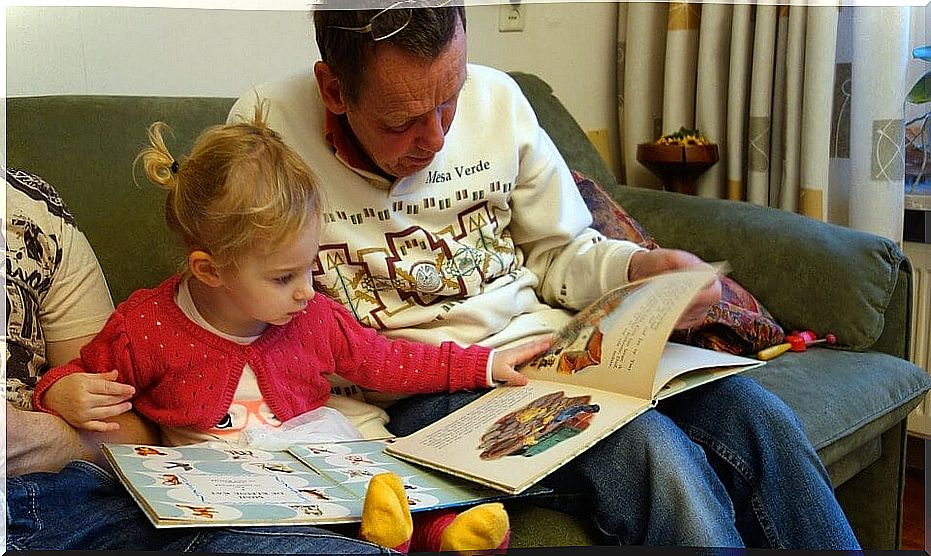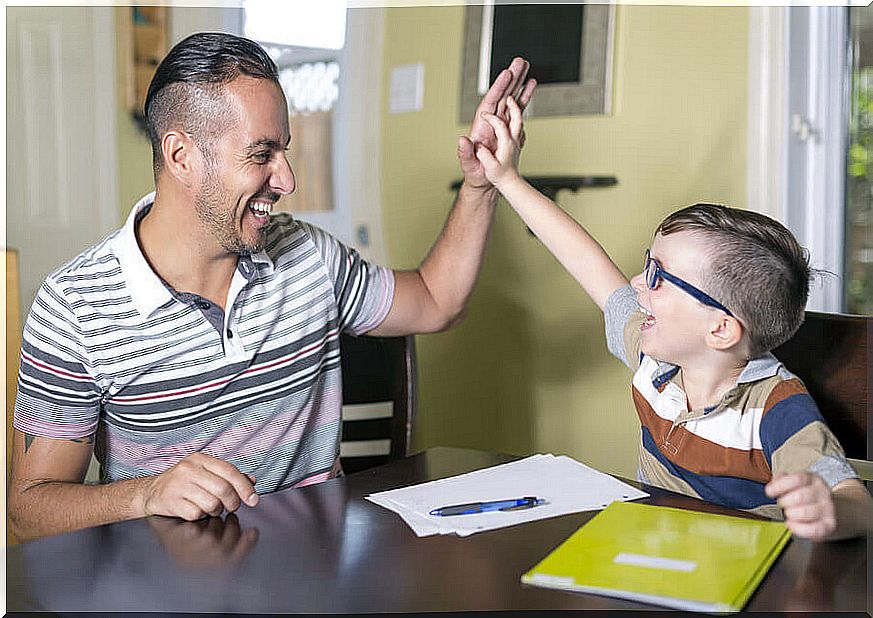What To Do If Your Child Stutters?

Are you worried that your child sometimes stumbles when he talks and you don’t know if it is normal or if he may have a problem? Many children under the age of 5 stutter occasionally or have disfluencies. Does your child stutter? We tell you what to do about it.
According to the Spanish Stuttering Foundation: “5% of children have disfluencies between the ages of 2 and 5, and since there is an 80% possibility of remission, we cannot and should not catalog them or hang a poster on them, with the psychological burden that this implies. That is why we speak of children who make disfluencies, who repeat, who are blocked … ”.
In most children these disfluencies disappear before the age of 16, but remain in approximately 1% of the general population. That is why if you see that your child has disfluencies, consult your pediatrician as soon as possible to guide you and send you to the specialist if necessary.

What is stuttering or disfluency?
There is talk of stuttering or disfluency when the child has difficulty maintaining the fluency of speech, has difficulty in the smooth and easy flow of words when speaking. If you repeat or prolong the sound an unusual number of times or hesitate too long between two words.
At the same time, effort may appear when speaking, blocks, facial tension or in the rest of the body. When the child has been struggling for a long time, he may develop a fear of speaking and may avoid communication.
Early detection of stuttering in a young child is vital to their future. As explained in the Guide for parents of the Spanish Stuttering Foundation: “It is common to hear parents comment that they have consulted the pediatrician or some other important reference and have received the message of ‘don’t worry, we have to wait’. It is very important to have a preventive consultation with a specialized speech therapist ”.
Having a diagnosis early is very important. The sooner it is intervened, the better the result will be. Currently there are modern diagnostic methods that allow differentiating normal errors in language fluency from expressions that indicate the onset of stuttering. Once it is diagnosed, a treatment can be given and the children can be instructed so that they know how to behave.

What can parents do if their child stutters?
The behavior of the parents with their child is essential for the treatment of this problem. It is logical that when parents hear him get stuck they try to help him. The first thing that comes to mind is to tell him not to get nervous, to speak more slowly or to repeat what he has said.
Most parents have counseled their children similar things . But there is usually little effect, and the child often still has trouble speaking. Many children feel that their parents feel bad about the way they speak.
The best thing is to try to convey ideas and attitudes to the child that help reduce or eliminate negative emotions towards disfluencies. Also try not to devalue your way of communicating. To help you, parents can follow the following tips:
- You have to accept the child’s way of talking
- Don’t feel guilty because your child stutters
- Don’t think of stuttering as a negative
- Try not to convey displeasure when he is stuck
- Try not to get impatient when your child stutters
- You think the child is making efforts to control his speech

A tip if they stutter: talk to your child
Following these tips and consulting a specialist can be the first steps to help your child. It is also important to find a time each day, about fifteen or twenty minutes, so that parents can chat with their child alone in a relaxed way. It’s about making you feel comfortable and able to speak openly.
It can be an excellent resource to facilitate its expression, without anything or anyone interrupting you in that daily conversation. You have to try to make the child feel like a protagonist by proposing topics of interest to them. The child will speak with more interest about the topics he likes.
You should also try to maintain a dialogue with the child and avoid direct questions. Direct questions are more difficult for children with poor fluency. It forces them to specifically answer that question and they will feel uncomfortable if your answer is expected. Also another idea is to read stories together, which can facilitate fluency both when reading and telling what you read.










